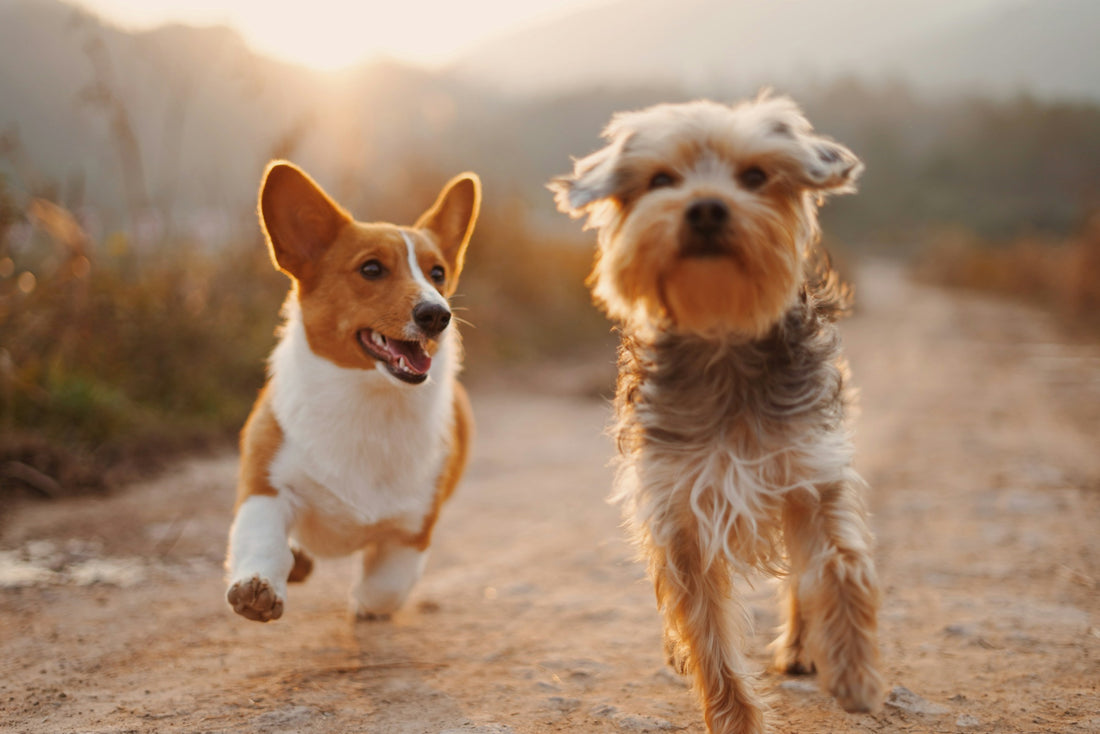Socialising your dog properly can ensure they have positive interactions with other pets and people. Here are some strategies to help you introduce dogs to new pets and people effectively:
Start Young
- Early Exposure: Begin socialising your puppy as early as possible. The critical socialisation period for puppies is between 3 and 12 weeks of age.
- New Experiences: Expose your puppy to a variety of experiences, people, animals, and environments during this period to build their social skills.
Create a Safe Environment
- Controlled Introductions: Ensure that initial meetings with new dogs and people happen in a controlled environment to reduce stress.
- Safe Spaces: Provide your dog with a safe space to retreat to if they feel overwhelmed.
Make Socialising a Priority
- Daily Interactions: Incorporate socialisation into your dog’s daily routine. This includes meeting new people and dogs, and experiencing different environments.
- Consistency: Regular, consistent socialisation helps reinforce positive behaviours and build your dog’s confidence.
Watch for Signs of Stress
- Body Language: Be attentive to your dog's body language. Signs of stress include cowering, tail-tucking, and excessive panting.
- Intervene When Necessary: If your dog shows signs of distress, remove them from the situation and give them time to calm down.
Develop Opportunities for Introductions
- Play Dates: Arrange play dates with other dogs to give your dog opportunities to interact in a positive setting.
- Training Classes: Enrol your dog in training or socialisation classes to help them learn how to interact with other dogs and people under professional guidance.
How to Introduce Dogs to Each Other
Meeting at a Neutral Location
- Prevent Territorial Behavior: Meet at a neutral location such as a park to prevent territorial aggression.
- Leash Control: Keep both dogs on a leash but allow them some slack to move and interact freely.
Stay Calm
- Manage Your Stress: Dogs can sense your stress, so stay calm and relaxed during introductions.
- Positive Reinforcement: Use a calm, encouraging tone of voice and offer treats to both dogs for positive interactions.
Give Them Space
- Avoid Crowding: Allow the dogs space to move away from each other if they feel uncomfortable.
- Observe Interaction: Watch how the dogs interact and be ready to intervene if necessary.
Take It Slow
- Gradual Introductions: Allow the dogs to interact for short periods initially and gradually increase the time as they become more comfortable with each other.
- Separate Areas: Provide separate areas in your home where each dog can retreat to feel safe.
Puppy Socialisation
Meet New People and Animals
- Varied Interactions: Introduce your puppy to a variety of people and animals to help them learn to socialise with different individuals.
- Positive Experiences: Ensure these interactions are positive to build your puppy's confidence and social skills.
Visit New Places
- Exploration: Take your puppy to new places to expose them to different environments, sounds, and smells.
- Comfort Around Children: Help your puppy get comfortable around children by supervising their interactions and ensuring they are positive.
Reinforcing Good Behavior
Praise and Rewards
- Positive Reinforcement: Use praise and treats to reinforce good behavior during social interactions.
- Consistency: Be consistent with rewards to help your dog understand what behavior is expected.
By following these guidelines, you can help your dog develop strong social skills, making their interactions with new pets and people positive and enjoyable. Socialisation is an ongoing process, so continue to provide your dog with new experiences and opportunities to interact with others throughout their life.

